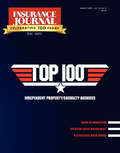Converge Direct Mail with Digital Marketing
Only marketers that “don’t get it” pay printers and the U.S. Postal Service (USPS) to output and distribute printed materials that promote their business. The cool kids eschew dead trees and trucks and use digital media exclusively to instantly communicate with like-minded folks and firms.
To them, direct mail is an advertising anachronism akin to the Yellow Pages. This is fallacious thinking, as the Yellow Pages are seldom looked at, while postal mail is perused five or six days a week. To paraphrase Mark Twain, “the death of direct mail is greatly exaggerated.”
Cool Kid
Speaking of cool kids, Selena Gomez is an under-20 Disney star. According to an interview posted on TUAW.com, Gomez said she likes to send and receive mail the old-fashioned way. So if this popular Millennial likes getting things in the mail, others of her generation do as well, even if they don’t readily admit it. It’s why Gomez asked to invest in “Postcards on the Run,” an iPhone/Android app she liked and used. It allows users to create and send real postcards from their phone, featuring photos they took and messages they type. Cards are printed by the vendor and mailed to recipients. This technology represents a simple convergence of the old and new worlds of communication.
GEICO Mails
GEICO regularly uses direct mail to generate phone calls, web visits, and mobile-based quote activity. It performs the latter by including a Quick Response (QR) code in its marketing letters, including one that I received. I scanned the code with my iPhone QR reader app (free) and was taken to a small Gecko-emblazoned welcome page that thanked me for reading my mail.
It also contained two buttons: “Click to Call” and “Get Quote Now.”
The first button dials their 800# for you; the second takes you to a mini-questionnaire to complete for your quote. This approach is another excellent example of converging direct mail and digital marketing. Independent agents can do something similar in their own mailings. Start by visiting a site like QRstuff.com to create your own QR codes.
Marketing Postcards and Letters
Directing postcards to prospects is a low-cost way to test the quality of a mailing list and to be seen. Target-focused letters sent to specific prospects also can be effective, particularly when they employ digital marketing convergence and more.
For instance, you can build a picture “postcard-letter hybrid” by combining color photos, oversized headlines, and creative target-specific text. Visit www.agencyideas.com/instant for examples. Tip: Always send your mailings by first class to make certain they are promptly delivered and any non-deliverables are returned.
Down But Not Out
Over a recent four-year period, first class mailings have declined by 20 percent. Just look in your mailbox; there’s not nearly as much mail (first class and otherwise) in there as there used to be. The USPS is aggressively cutting costs to stay viable. But, what’s bad for them isn’t necessarily bad for you. Less first class mail means that your mail stands out simply by virtue of being there.
Give 110%
Still, your success depends on more than an empty mailbox. Use Ed Mayer’s famous 40-40-20 direct marketing rule as your guide. Essentially, it states that 40 percent of success depends on your mailing list. Another 40 percent is who you are and what you offer. The remaining 20 percent is creativity, paper and postage. Perhaps today, another 10 percent could be added for converging your direct mail piece with digital marketing. Yes, these numbers add up to 110 percent. But hey, isn’t that what you are supposed to give according to that equally famous sports cliché?
Was this article valuable?
Here are more articles you may enjoy.


 Wall Street WhatsApp, Texting Fines Exceed $2.5 Billion
Wall Street WhatsApp, Texting Fines Exceed $2.5 Billion  Political Violence in Polarized US at Its Worst Since 1970s
Political Violence in Polarized US at Its Worst Since 1970s  Security First Accountant Charged with Siphoning $1.4M Through Fake Invoices
Security First Accountant Charged with Siphoning $1.4M Through Fake Invoices  Inflation, Catastrophe Losses Lead P&C Underwriting Loss in 2023
Inflation, Catastrophe Losses Lead P&C Underwriting Loss in 2023 



